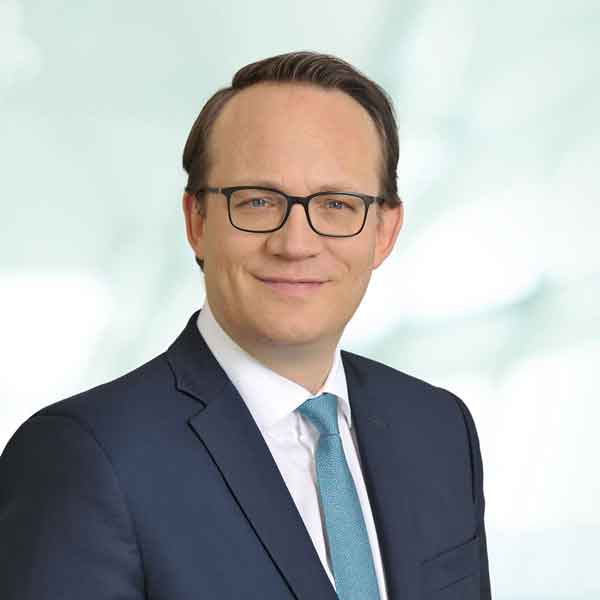RWE extends contract with CEO Markus Krebber until 2031
09.07.2025

At its Annual Press Conference today, RWE also commented on the impact of the war in Ukraine on energy supply. The company made it clear that security of supply and climate protection are more closely linked than ever before. RWE is therefore continuing to drive the expansion of its green core business as planned, with investments of €50 billion gross by 2030. In the long term, energy supply from renewable sources and the operation of flexible generation plants based on green molecules are key to becoming more independent of coal, oil and gas imports. In addition, the company will also support short- and medium-term measures for ensuring security of supply and diversifying fuel supplies in order to replace raw material imports from Russia.
In the short term, measures are needed to ensure stability of energy supply for the coming winter and in the following years. In this context, the company is currently reviewing which coal-fired power plant units that have already been taken off grid or are earmarked for decommissioning could be transferred into a reserve instead. For the lignite-fired power plants, this applies to the 300-MW unit in Neurath, which was decommissioned at the end of last year, to power stations that are scheduled to go off grid this year (1,500 MW) and those that are currently on “security standby” (900 MW). One hard coal-fired power plant under review is Kraftwerk Westfalen (800 MW), which was decommissioned at the end of 2020. It is up to the German government to decide if these units will need to operate on a temporary basis and to what extent they should be used to reduce gas consumption, for example.
For RWE, there is no question that these measures will not change the fundamental decision to phase out coal. The further acceleration of the coal phase-out will still depend on the speed of expansion of renewables and grids, the ramp-up of the hydrogen economy, and the construction of flexible generation capacity.
Diversifying the sources of supply for raw materials will play a key role in terms of security of supply. The German government is therefore focusing on the construction of LNG terminals, among other things, which will reduce dependence on a purely pipeline-based gas supply. Just a few days ago, a Memorandum of Understanding was signed to implement such a project in Brunsbüttel near Hamburg. RWE will be a strong partner in the project – with particular focus on the subsequent conversion of the terminal to enable the import of green molecules. Work is in full swing to be able to start operations as quickly as possible. Pragmatic action, swift planning and approval processes as well as short construction timelines along with high safety standards can make Brunsbüttel a role model for building an infrastructure that can also drive the ramp-up of the hydrogen economy.
Policy-makers are stepping on the accelerator so that electricity supply in Germany can be covered almost entirely from renewable sources as early as 2035. To this end, expansion paths and tender volumes are to be increased significantly once again. RWE CEO Markus Krebber: “I am counting on the upcoming ‘Easter package’ leading to a real acceleration and boost in the transformation process. We need that. And RWE supports it! We will implement every renewables project that’s possible.”